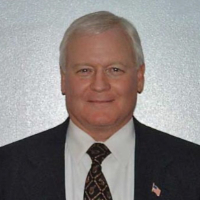Burlington County, NJ RICO Act Lawyers
Sponsored Law Firm
-
 x
x

Click For More Info:
-
Cohen & Bernstein, L.L.C.
1360 Clifton Ave #309 Clifton, NJ 07012» view mapCriminal Defense We’re In this Together!
We work hand in hand with our clients to ensure all of your questions are answered and progress through your legal issue is seamless.
800-978-7341
Not enough matches for Burlington RICO Act lawyer.
Below are all Burlington lawyers.
James R. Fridie
✓ VERIFIEDI am the founder and owner of the Fridie Law Group LLC. We are a full-service litigation firm with a concentration in Family Law, Criminal Law, Elder ... (more)
Thomas F. Flynn, III
✓ VERIFIEDThomas F. Flynn, III, is the founding shareholder of Flynn & Associates, P.C. He is an accomplished attorney admitted to the New Jersey Bar with mor... (more)
Michael Stein
✓ VERIFIEDThe law office of Michael J. Stein has been an integral part of the surrounding communities of Burlington County for more than a decade. We help fam... (more)
Hercules Pappas
✓ VERIFIEDI started Pappas & Richardson, LLC in 1998 with my good friend, Jay Richardson. We have grown into a very successful law firm and our latest success i... (more)
Herbert J Stayton
✓ VERIFIEDAdmitted to the Bar and practicing law in the State of New Jersey since 1974. Retired US military with 23 years service. Collegiate football offic... (more)
Vincent Joseph Gaughan
✓ VERIFIEDVincent Gaughan is a practicing lawyer in the state of New Jersey.
Cara McCafferty
✓ VERIFIEDI am an enthusiastic and very capable attorney that has own practice. With over 12 years of experience, I am confident that my abilities can meet your... (more)
 Lindsay Bernstein Clifton, NJ
Lindsay Bernstein Clifton, NJ Practice AreasExpertise
Practice AreasExpertise







